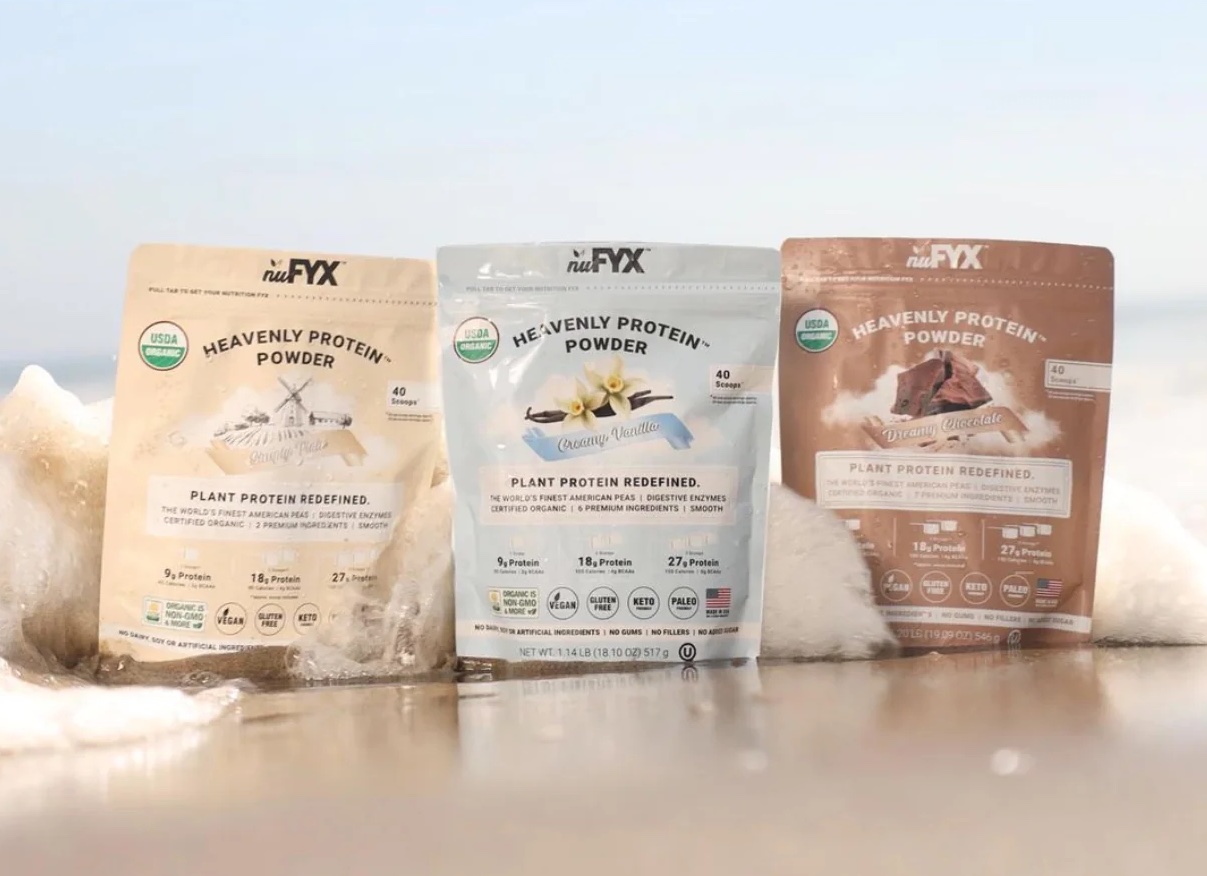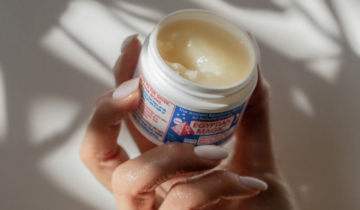At NUFYX, sustainability is our top priority.
Worldwide, consumers have been experiencing indigestion and other serious health issues from vegan protein powders. We wondered why.
After extensive research, we came across a study conducted by the Clean Label Project. They tested 134 of the top selling vegan protein powders on Amazon.com and found that 75% had elevated levels of lead, 70% had elevated levels of cadmium and 55% had elevated levels of BPA. Their key finding: these contaminants came from (1) the soil in which the peas were grown and (2) their traditional plastic tub packaging.
So why is the soil contaminated and how is plastic from the containers leaking?
We discovered that pea protein— the most common protein source in vegan protein powders— comes from peas grown overseas, primarily in China where there is polluted air, waters, and atmosphere infiltrating the soil.
Lead and other heavy metals such as arsenic, cadmium, and mercury within soils have the ability to be poisonous and cause adverse health effects.
So after all this, why do all the brands keep buying Chinese pea protein?
It is the lowest cost and mass produced. However, it is also the reason so many brands are testing high in heavy metals as the peas are grown in contaminated soil. They also need to be imported in cargo ships across the world which release toxic emissions into our atmosphere. Additionally, the plastic tub packaging that top selling brands use also typically come from China. While these tubs make their journey to the USA, the high temperatures that they are exposed to results in the toxic BPA material contaminating the powder.
When we figured this out, we tried to find a delicious American grown pea protein, but we couldn’t.
What scared us most was that all our favorite grocery stores were selling these health-threatening products. But the even scarier part, influencers across the planet were promoting these products to their masses without knowing the truth. We needed to create a product that has even more stringent health standards than those of both the FDA and the EU. We felt that we, and consumers, deserved an option with a protein source grown locally on our American farms.





 No products in the cart.
No products in the cart.